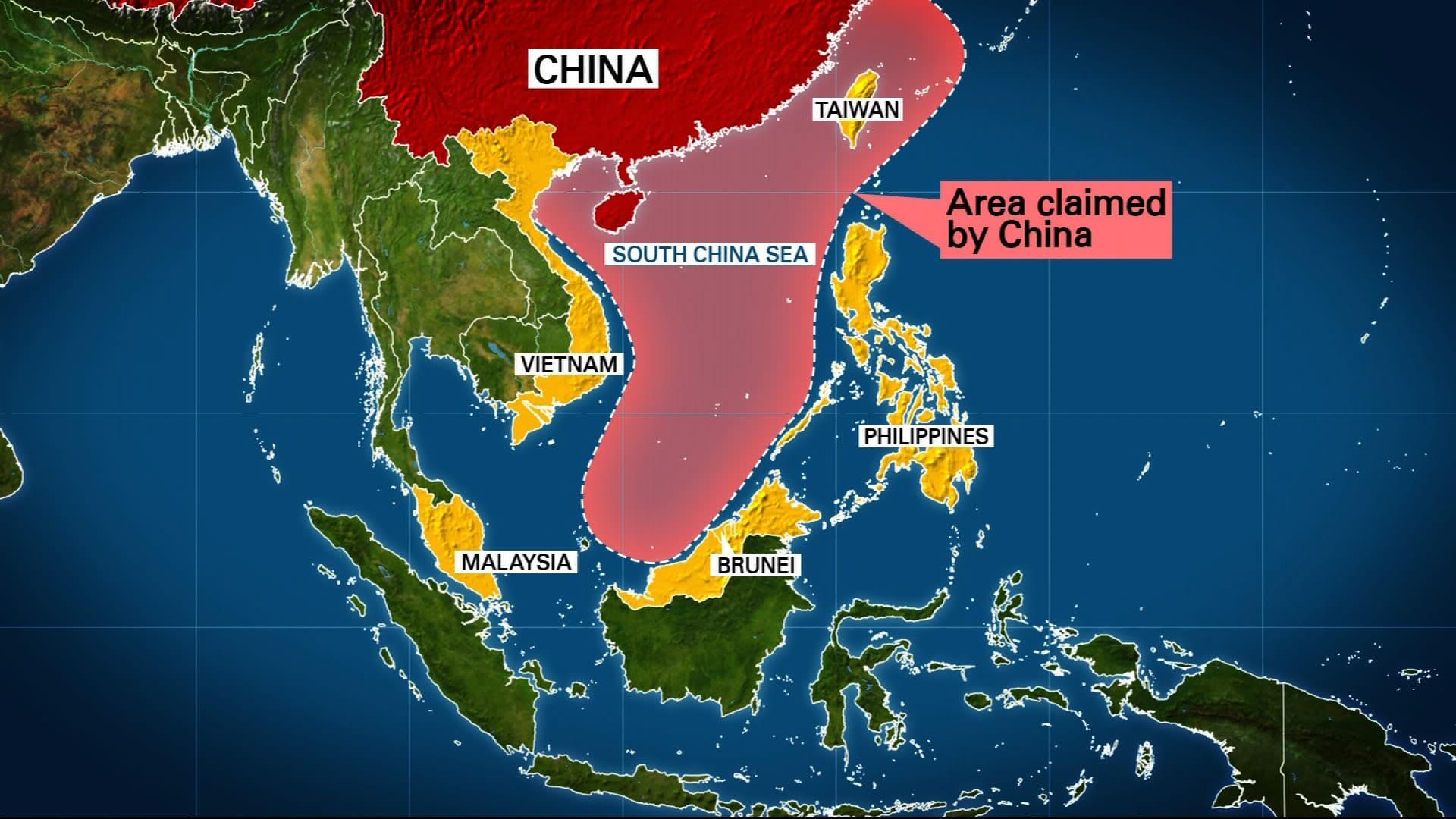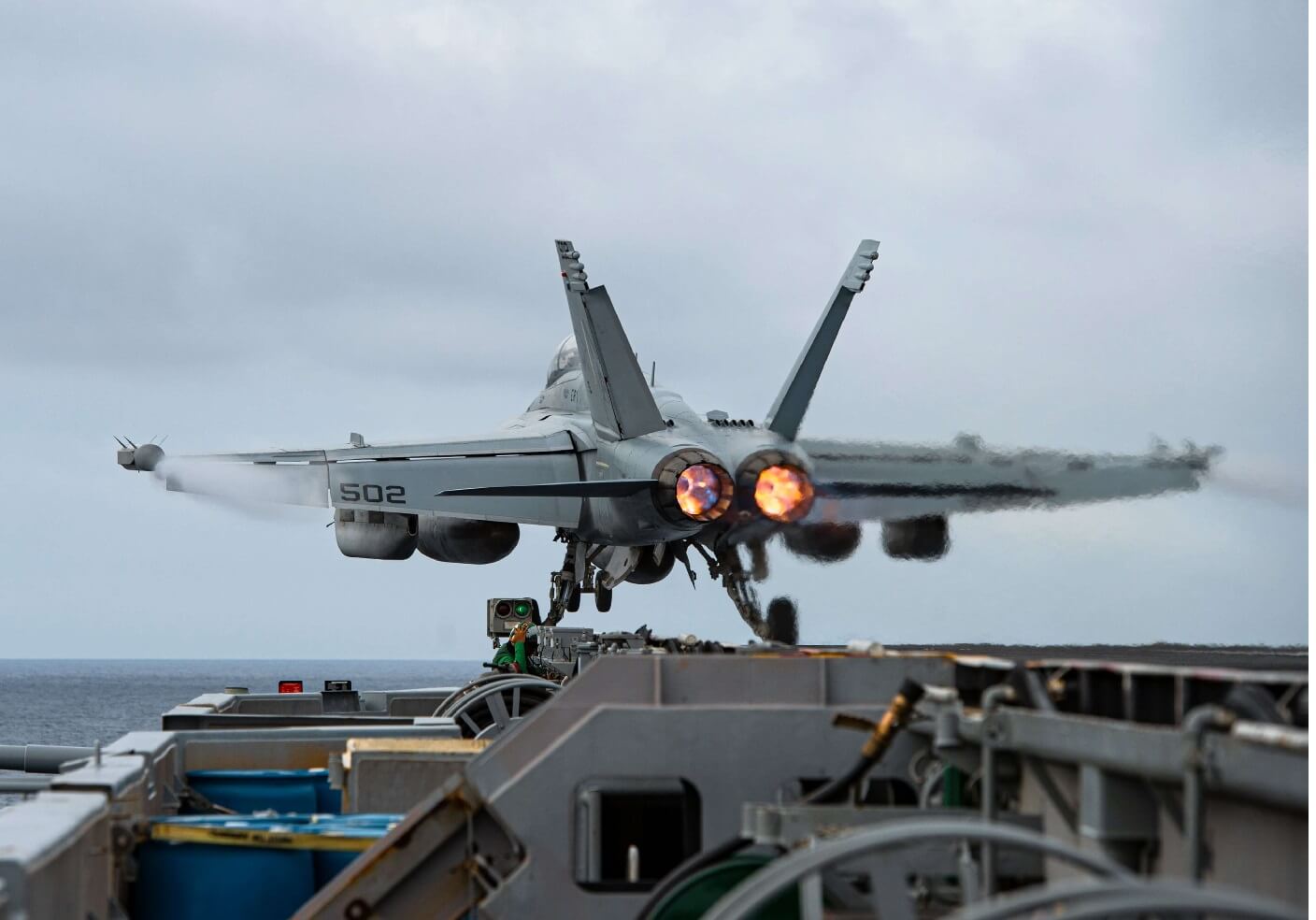For years, the US Navy has been conducting Freedom of Navigation Operations (FONOPs) in the Indo-Pacific, particularly in the South China Sea—a region that has been a constant source of friction between China and the US.
China had been raising concerns for years; however, Beijing has now decided to challenge the US Navy operations in its backyard on a legal basis.
In a first-of-its-kind report, the Chinese government has criticized the US Navy’s FONOPs, stating that these operations lack a legal basis in international law and reflect Washington’s habitual practice of using military force to pressure other nations.
The report, “Legal Assessment of the United States’ ‘Freedom of Navigation’” is the first official study of this kind by Beijing and was prepared by the China Institute for Marine Affairs under China’s Ministry of Natural Resources.
The report reflects China’s growing desire to challenge US Navy operations within what Beijing considers its maritime claims in the South China Sea. Incidentally, China has termed these operations by the US as part of its “gunboat diplomacy”.
The report claims that the US’s “freedom of navigation” incorporates numerous self-created concepts and self-imposed standards of so-called customary international law, which have no basis in true international law and the practices of many countries.
Chinese Report On US Freedom of Navigation Operations (FONOPs)
“US ‘freedom of navigation’ lacks a basis in international law and seriously distorts the interpretation and development of international law,” the report claims.
Furthermore, the report claims that concepts like “international waters” have been created by the US at its own convenience.
“The United States created several ‘legal concepts’. One is ‘international waters’. It does not exist in the contemporary law of the sea.”
Russia’s NATO Bid Derailed! How Europe Blocked Moscow’s Trans-Atlantic Dream & Fueled Ukraine War
Such operations by the US, the report warns, “risk threatening regional peace and stability with military force and disrupting the international maritime order (and) embody distinct illegality, unreasonableness and double standards”.

The report added: “The US Navy has repeatedly and continuously entered into the territorial seas of other states worldwide for many years, aiming to challenge the requirement that foreign warships must give prior notification or receive authorisation before entering territorial seas.”
It said that the US has defined exclusive economic zones (EEZs) in a “unilateral and extreme” way that suits its interests.
The US was “attempting to fully apply the concept of high-seas freedoms within EEZs in order to maintain its hegemonic interests in the world’s oceans”.
“When US ‘freedom of navigation’ is entirely subordinate to military and strategic purposes and used to deter and pressure other states, it has completely morphed into a ‘freedom of military threat’,” the SCMP reported, quoting from the report.
Zhang Haiwen, former Director General of the China Institute for Marine Affairs under China’s Ministry of Natural Resources, stated at the press conference that the report aims to expose the US’s hegemonic practices disguised as lawful, revealing the fragility and untenability of its claimed legality from a professional perspective.
Earlier in July, the South China Sea Strategic Situation Probing Initiative (SCSPI) also released a report titled ‘Report on Navigation and Overflight Situation in the South China Sea.’
That report also accused the US of not acknowledging the “ambiguity of international laws on this issue” and of failing to resolve the problem through “equal consultation.”
“Instead, it requires other countries to compromise and make concessions for the interests of the US. This is a blatant practice of hegemony irrelevant to freedom of navigation, setting up a separate system beyond the UNCLOS mechanism and attempt to override international law with its own domestic laws and practices.”
The SCSPI report said that initially, the US FONOPs were directed against Vietnam, Malaysia, and the Philippines, rather than China.
“It was not until 2007 that China gradually became the focus of attention, which is basically synchronized with the process that the United States gradually recognized China as a strategic maritime competitor.”
“This shows that FONOPs have a distinct political and strategic significance, rather than the so-called order and rules basis frequently emphasized by the United States,” it said.
Canada Boosts German TkMS After Big Australian Loss; Can It Outshine Hanwha For RCN Submarine Deal?

United Nations Convention On The Law Of The Sea (UNCLOS)
The report claims that the US, under its FONOPs policy, is demanding rights that are not explicitly stated in the UNCLOS.
However, an unbiased reading of the UNCLOS will show otherwise.
Freedom of Navigation laws under the United Nations Convention on the Law of the Sea (UNCLOS) allow ships from any country to sail through international waters without interference. UNCLOS, adopted in 1982, establishes rules for the use of the oceans by countries.
It ensures that all nations can freely navigate the seas for trade, travel, and other peaceful purposes.
Under UNCLOS, international waters include areas beyond a country’s territorial sea, which extends 12 nautical miles from the coast. In these waters, called the high seas, ships have the right to move freely, fly over, fish, or conduct research, as long as it’s peaceful.
Coastal countries control their territorial waters, but even there, foreign ships have the right of “innocent passage,” meaning they can pass through without harming the coastal state’s security or breaking its laws.
UNCLOS also defines Exclusive Economic Zones (EEZs), extending 200 nautical miles from a country’s coast, where the coastal state has rights over resources like fish or oil, but foreign ships can still navigate freely.
Ukraine “Silicon Valley” Of Defense: How A War-Torn Nation Is Fast Emerging As A Drone & Missile Hub
Freedom Of Navigation In The SCS?
So, it is clear that under the UNCLOS, the US, or for that matter any other country, has the right to enjoy or enforce ‘Freedom of Navigation’ not only in the high seas, but also in the Exclusive Economic Zone (EEZ), and the territorial waters of the coastal states.
This same law also applies to the South China Sea.
Supporting the Freedom of Navigation granted in UNCLOS, the Asia Maritime Transparency Initiative said: “Reaffirming the United Nations Convention on the Law of the Sea (UNCLOS), this freedom of the seas includes, among other things, the rights of innocent passage (Art. 17), transit passage (Art. 38), archipelagic sea lanes passage (Art. 53), the freedoms of navigation and overflight and “other internationally lawful uses of the sea” (Art. 58), and the freedom of the high seas (Art. 87).”
“Thus, despite efforts by some to narrowly construe what international law guarantees to states in the oceans and airspace of the world, the phrase ‘freedom of the seas’ legitimately includes far more than the freedom for commercial vessels,” it added.
However, the Chinese report has a valid point when it accuses the US of hypocrisy. As the report rightly points out, although the US cites UNCLOS to claim its freedom of navigation in the South China Sea, the US has never ratified the UNCLOS.
The report is also correct in pointing out that, currently, the US FONOPs appear to be overtly focused on China and are mainly directed against its adversaries, rather than its allies.
However, China is by no means the only country against which the US has conducted FONOPs.
In April 2021, a terse US Navy press release announced that the USS John Paul Jones “asserted navigational rights and freedoms… inside India’s exclusive economic zone, without requesting India’s prior consent,” adding that the operation challenged “India’s excessive maritime claims.”
Furthermore, while China is questioning the legal basis of the US FONOPs, it is worth mentioning that Beijing has also conducted such operations in the EEZ and territorial waters of other countries, including the US and its allies.
For instance, a Chinese surveillance ship operated off the coast of Hawaii in 2018 to monitor the U.S.-led Rim of the Pacific (RIMPAC) exercise.
Furthermore, earlier in April this year, three Chinese ships not only sailed in the EEZ of Australia, but also conducted live-fire drills in international waters very close to Australia’s EEZ without prior notice to Canberra.
These instances demonstrate that while China is questioning the legal basis of US actions, Beijing has not shied away from using UNCLOS to sail in the EEZ or the territorial waters of other countries.
The Lowy Institute recently highlighted these issues in a research paper. It rightly underlined that the US has yet to ratify the UNCLOS; however, it also noted that Washington isn’t violating international law with its FONOPs, even though the US FONOPs are often a provocative way of enforcing freedom of navigation laws.
The US should actively tackle common misperceptions about FONOPs, the Lowy Institute paper suggested.
“It wouldn’t hurt for America to more-consistently highlight when other countries exercise their navigation rights off its own coast,” it added.
- Sumit Ahlawat has over a decade of experience in news media. He has worked with Press Trust of India, Times Now, Zee News, Economic Times, and Microsoft News. He holds a Master’s Degree in International Media and Modern History from the University of Sheffield, UK.
- VIEWS PERSONAL OF THE AUTHOR.
- He can be reached at ahlawat.sumit85 (at) gmail.com




